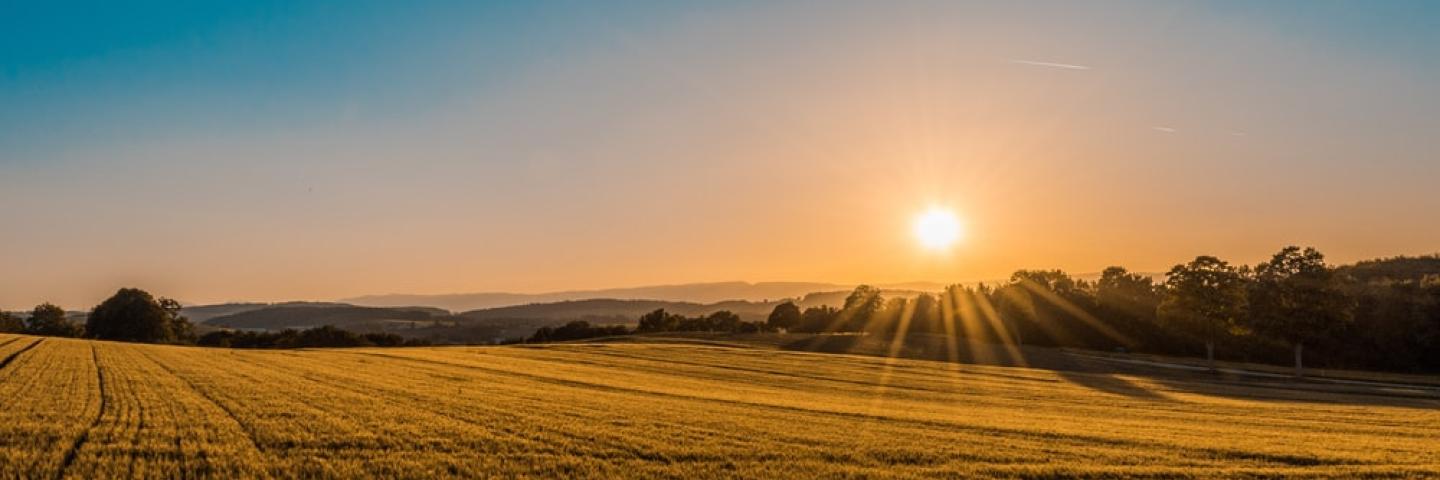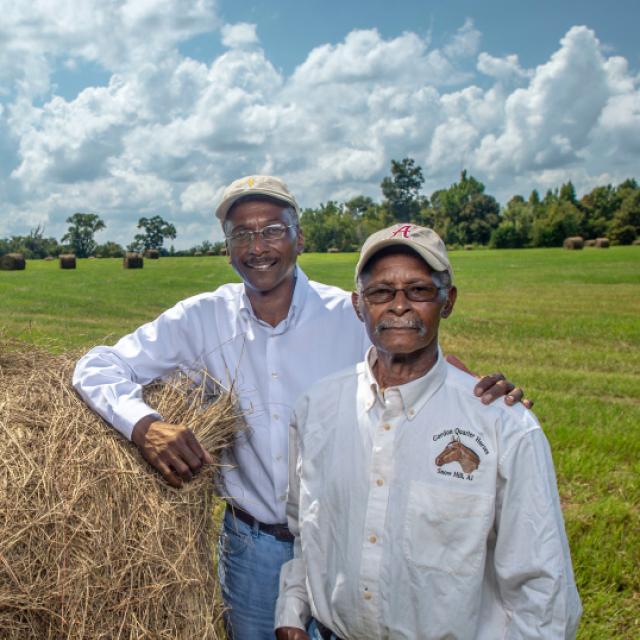
The Environmental Quality Incentives Program (EQIP) is NRCS’ flagship conservation program that helps farmers, ranchers and forest landowners integrate conservation into working lands.
Conservation Planning Activities (CPAs), Design and Implementation Activities (DIAs), and Conservation Evaluation and Monitoring Activities (CEMAs)
Technical service providers (TSP) or other third-party service providers (Providers) for NRCS can carry out planning, design, implementation, and monitoring tasks for NRCS conservation program purposes (previously known as Conservation Activity Plans (CAPs)). NRCS has reorganized and renamed CAPs into three new categories—Conservation Planning Activities (CPAs), Design and Implementation Activities (DIAs), and Conservation Evaluation and Monitoring Activities (CEMAs). NRCS broke these activities out to clarify which phase of the NRCS conservation planning process the TSP/Provider will be supporting.
Climate Smart Agriculture through EQIP
Agricultural producers play a critical role in fostering a healthy environment through climate-smart management practices that conserve natural resources, build healthier soils, sequester carbon, and reduce greenhouse gas emissions including carbon dioxide (CO2), methane (CH4), and nitrous oxide (N2O). When row crop producers adopt conservation practices such as no-till or plant diverse cover crops, for instance, they’re building healthier soils while also sequestering carbon from the atmosphere.
The signup for irrigation assistance is continuous, however the deadline for Fiscal Year 2026 is TBD.
Irrigation Assistance through EQIP
Under the 2008 Farm Bill, priority will be given to water conservation or irrigation efficiency applications that will reduce water sue or where the producer agrees not to use any associated water savings to bring new land under irrigation production.
Maine NRCS will set aside at least $1,000,000 each year in financial assistance funding for eligible applicants across the state. These dollars will be used to fund projects that address irrigation efficiency and assist producers to comply with Maine Department of Environmental Protection Chapter 587 In-Stream Flows and Lake and Pond Water Levels regulations.
The signup for irrigation assistance is continuous, however the deadline for Fiscal Year 2026 applications is TBD.
On-Farm Energy Initiative
The EQIP On-Farm Energy Initiative enables the producer to identify ways to conserve energy on the farm through an Agricultural Energy Management Plan (AgEMP), also known as an on-farm energy audit; and by providing financial and technical assistance to help the producer implement various measures and practices recommended in an on-farm energy audit.
Applications are accepted on a continuous basis; however, the deadline for the On-Farm Energy Initiative for Fiscal Year 2026 funding consideration is TBD.
Organic Agriculture Initiative
Maine has received funds for an organic initiative to encourage more organic agriculture production. Funding for the initiative is being made available through EQIP. Successful applicants will receive funding to implement conservation practices that have been identified as needed to improve natural resource conditions. Not only do these practices offer significant environmental benefits, but they are also important to growers.
If producers who sell less than $5,000 a year wish to use EQIP to implement practices related to organic production, they may do so; however, they are required to implement conservation practices for certified organic production that are consistent with an Organic System Plan (OSP). Payments are not authorized for activities or practice components which are solely production related and are not linked to an identified resource concern. Payments may not be used for any costs related to organic certification.
National Water Quality Initiative
The National Water Quality Initiative will work in priority watersheds to help farmers, ranchers and forest landowners improve water quality and aquatic habitats in impaired streams. NRCS will help eligible producers implement conservation and management practices through a systems approach to control and trap nutrient and manure runoff. Qualified producers will receive assistance for installing conservation practices such as cover crops, filter strips and terraces.
In Maine, two watersheds were selected to participate in this initiative: The Cross Lake Watershed in northern Aroostook County and the Sheepscot River Watershed in Lincoln County. Within each of these Watersheds, several sub-watersheds were identified as priority areas as listed below and shown in the overview maps.
- The Cross Lake Watershed includes Daigle Brook, Dickey Brook and Cross Lake subwatersheds. For more information about applying in this watershed, contact:
Fort Kent Field Office
139 Market Street, Suite 106
Fort Kent, Maine 04743
(207) 834-3311 x3
- The Sheepscot Watershed includes Sheepscot River and Dyer River subwatersheds. For more information about applying in this watershed, contact:
Augusta Field Office
2305 North Belfast Ave.
Augusta, Maine 04330
(207) 622-7847, x3
Belfast Field Office
46 Little River Dr.
Belfast, Maine 04915
(207) 338-1964, x3
Pollinators
Whether you are a farmer who relies on native bees for pollination, or a forestry producer interested in conservation, consider applying for funding through an NRCS cost-share program today.
EQIP State Aquatic Restoration Pool
The state aquatic restoration pool provides the opportunity for stream connectivity and or instream habitat projects. This pool is available statewide and focuses on perennial streams lacking appropriate base conditions. The state pool is focused on implementing solutions to two core resource concern practices, with select other supporting practices that may be executed in conjunction with the core practices.
Ranking Criteria
Program Contact
Leslie Nelson
Assistant State Conservationist for Programs
Phone: (207) 990-9564
leslie.b.nelson@usda.gov
Additional Information
Ready to get started?
Contact your local service center to start your application.
How to Get Assistance
Do you farm or ranch and want to make improvements to the land that you own or lease?
Natural Resources Conservation Service offers technical and financial assistance to help farmers, ranchers and forest landowners.

To get started with NRCS, we recommend you stop by your local NRCS field office. We’ll discuss your vision for your land.
NRCS provides landowners with free technical assistance, or advice, for their land. Common technical assistance includes: resource assessment, practice design and resource monitoring. Your conservation planner will help you determine if financial assistance is right for you.
We’ll walk you through the application process. To get started on applying for financial assistance, we’ll work with you:
- To fill out an AD 1026, which ensures a conservation plan is in place before lands with highly erodible soils are farmed. It also ensures that identified wetland areas are protected.
- To meet other eligibility certifications.
Once complete, we’ll work with you on the application, or CPA 1200.
Applications for most programs are accepted on a continuous basis, but they’re considered for funding in different ranking periods. Be sure to ask your local NRCS district conservationist about the deadline for the ranking period to ensure you turn in your application in time.
As part of the application process, we’ll check to see if you are eligible. To do this, you’ll need to bring:
- An official tax ID (Social Security number or an employer ID)
- A property deed or lease agreement to show you have control of the property; and
- A farm number.
If you don’t have a farm number, you can get one from USDA’s Farm Service Agency. Typically, the local FSA office is located in the same building as the local NRCS office. You only need a farm number if you’re interested in financial assistance.
NRCS will take a look at the applications and rank them according to local resource concerns, the amount of conservation benefits the work will provide and the needs of applicants. View Application Ranking Dates by State.
If you’re selected, you can choose whether to sign the contract for the work to be done.
Once you sign the contract, you’ll be provided standards and specifications for completing the practice or practices, and then you will have a specified amount of time to implement. Once the work is implemented and inspected, you’ll be paid the rate of compensation for the work if it meets NRCS standards and specifications.

